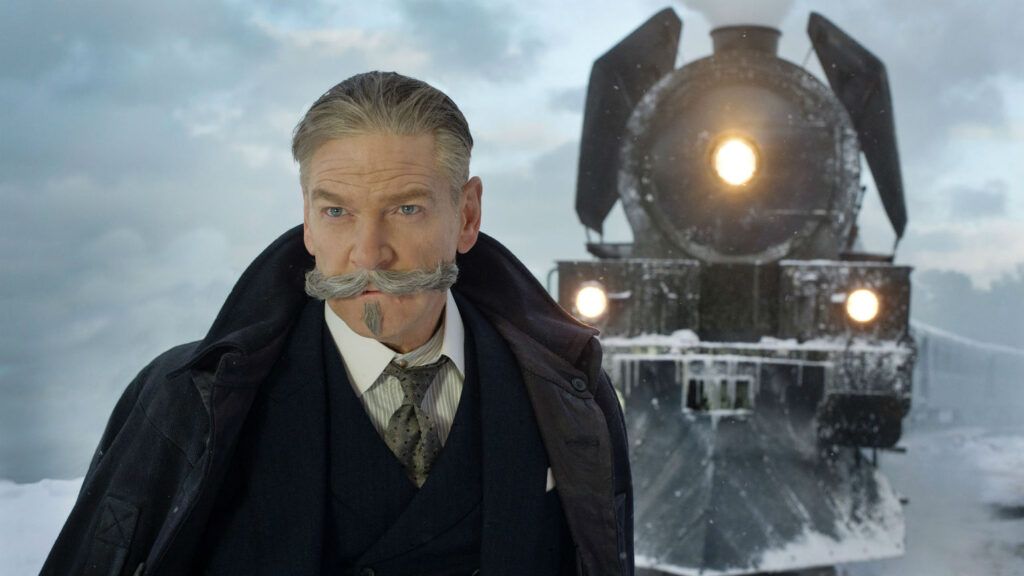It’s been over 80 years since Agatha Christie’s detective novel Murder on the Orient Express debuted and Hollywood still can’t get enough of one of the author’s most popular mysteries.
Director Kenneth Branagh has assembled an all-star cast that includes Judi Dench, Daisy Ridley, Michelle Pfeiffer, Josh Gad, and Leslie Odom Jr. for a lavish, blockbuster-sized re-telling of Christie’s work which opens on Nov. 10th. Adaptations have been done before but, according to Christie’s great grandson, James Prichard, nothing has approached the scale of this production. The film hopes to bring Christie’s thrilling tale to a new audience by making some modern changes Prichard thinks his great-grandmother would approve of.
Guideposts.org chatted with Prichard about the long road to making the film, the legacy of his great-grandmother’s work, and crafting the perfect Agatha Christie experience.
GUIDEPOSTS: It’s been over 80 years since Murder on the Orient Express was published. Does it surprise you at all that people are still obsessed with your grandmother’s work?
James Prichard: I think yes, it’s kind of remarkable, but actually when you think about it they are brilliant books and brilliant books make brilliant movies that are still relevant today.
GUIDEPOSTS: What is it about a Christie novel that stands this test of time?
JP: Very simply, the story. They are just extraordinary plots and great stories don’t age, they don’t lose their power over time. What people are looking for, in all aspects of entertainment, are great stories and Agatha Christie has loads of them.
GUIDEPOSTS: What was the pitch that convinced you that the filmmakers knew what they wanted to do with this story?
JP: These things take a little time. The first meeting was actually with my father and [screenwriter] Simon Kinberg in 2010, so that gives you a rough flavor. Simon was very passionate on what he wanted to do and then gradually things sort of began to take place. The key thing is the script. The first draft of the script we read, which was probably in 2013, was brilliant. And [producer/writer] Michael Green, I think has done an incredible job with this story. It is both very true to the original in lots of ways [but] it does add a couple of things. It feels very modern, very relevant.
GUIDEPOSTS: Is there an unofficial test people must pass in order to adapt your great-grandmother’s work?
JP: We use a thing called the Agatha Christie experience and everything has to feel like an Agatha Christie experience. We mainly just have this thing that you read something or you hear something and you realize that people get it or not. One of the things that I love about this is that the portrayal of [Detective] Poirot is very, very clever. Poirot isn’t always done right. He can be a caricature. He can be too comic. He can be actually just unlikeable and Poirot isn’t unlikeable.
I think getting that right was key and it was very clear early on that originally Michael Green, and then later Ken [Branagh] really got what Poirot was about, and that’s not easy. That was very reassuring.
GUIDEPOSTS: Is there pressure on you as a family member of Agatha Christie to get these adaptations right?
JP: Enormous pressure. I mean, that’s sort of what the job is about. I don’t tend to worry myself with what she would think, because I just can’t do that. A, she was way more intelligent than me and B, it’s too long ago and these things have moved on in lots of different ways. But I worry about doing justice by the work.
She adapted quite a lot of her books for the stage. She actually had a few adaptations done by other people before she took them over, and she thought they were all a bit timid and no one was being quite brave enough. She understood that you need to change things for different media. So I do at least give myself solace that she would, I think, have been brave if she was adapting for film.
GUIDEPOSTS: Which actor were you excited to see take on a role in this story?
JP: I think Michelle Pfeiffer kind of steals the show in lots of different ways. I mean, one of the things that is lovely about this film is you’ve got all these stars, and they all have their moment, but Michelle Pfeiffer has a couple of really important moments [that] I think [are] extraordinary.
GUIDEPOSTS: What do you think your great-grandmother would think about the film and people’s love for her work so many years later?
JP: I think I can say that she would be shocked and probably rather humbled actually. She was a very shy and quite humble person. I think she would be amazed. I think she would be incredibly proud as well. But I think mainly she would be surprised that we’re still here, you know 40 years after her death, even discussing her works let alone watching massive Hollywood blockbusters of it.
GUIDEPOSTS: Going forward, is there a piece of her work that you would like to see get the Hollywood treatment?
JP: I think all of them, at some point in some shape. There are a few in various stages of development. Witness for the Prosecution hopefully will be made. Ben Affleck is slated to direct and star in that. There are a few others as well. I would like to do something with Ms. Marple at some point. She’s always slightly lived under the shadow of Poirot, and I think maybe at some point we could do something there.






